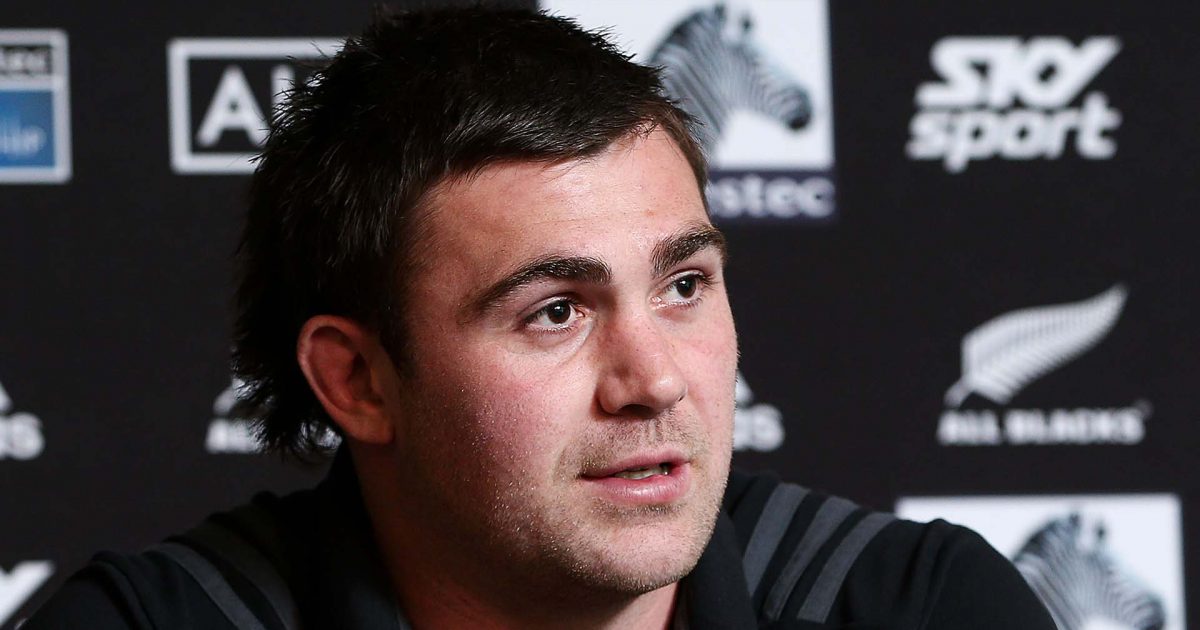Why Liam Squire will be sorely missed by the All Blacks and NZ rugby

After two years of battling persistent injuries to his knee and hip, former All Blacks star Liam Squire has made the decision to call time on his days as a rugby player.
Prioritising his health and well-being, the 30-year-old will now step away from the game that gave him 23 test caps for the All Blacks, almost half a century of Super Rugby appearances, an NPC title and a brief cameo in Japan’s Top League.
That’s a decent knock befitting a player who, when at the peak of his powers, was easily one of the most destructive players in New Zealand, if not worldwide.
You’d be a brave man to front up to the challenge of trying to stop a rampant Squire at full tilt – he was pretty rapid for a big guy – and you’d probably join the majority of those who tried and failed to do so.
Fiji and Melbourne Rebels halfback Moses Sorovi experienced that first-hand when he was used as a doormat in the lead-up to a Squire try while playing for the Reds against the Highlanders in Brisbane three years ago.
Likewise, former Springboks wing Raymond Rhule will still be having nightmares about trying to bring Squire to a halt from most kick-offs and restarts during the infamous 57-0 Albany thrashing at the hands of the All Blacks in 2017.
Rhule looked so intimidated by the fearlessness and aggression of Squire’s ball-carrying that he seemed content with just stepping aside and flinging his arms out in a reluctant, half-hearted attempt to stop the human bulldozer.
That, of course, ended with Squire swatting Rhule, who appeared desperate to avoid the consequence of defending an athlete as powerful as the former loose forward, aside with ease in what proved to be the Ghanian-born speedster’s last test match.
Such frail defence is rarely seen in test rugby, especially in matches between the All Blacks and Springboks, but fear can do funny things to people, and that was clearly what Squire instilled in the minds of his opponents.
That fear extended to those who were forced to endure the discomfort of coming into contact with Squire’s shoulder whenever he was on defence. The rugged nature of his attacking play was equally as damaging in the defensive side of his game as well.
It wasn’t uncommon to see Squire fly into tackles with minimal regard for his own safety, and the outcome was often spectacular.
More than that, his uncompromising defensive attitude was certainly effective in thwarting opposition attacks, and a highlights reel of his biggest hits would make for top-drawer viewing.
Former All Blacks star Liam Squire has announced his shock retirement from professional rugby due to a long-standing knee injury. #AllBlacks #Highlanders https://t.co/nEbEhMg5ui
— RugbyPass (@RugbyPass) October 12, 2021
Those aspects of his game will make Squire a dearly missed figure as he enters a probable post-playing career in farming, but perhaps no team will feel as empty-handed by his sudden retirement as the All Blacks.
Yes, it is the Highlanders who have drawn the short straw in this situation given Squire has hung up his boots halfway through a two-year deal in his second stint with the Dunedin-based franchise.
However, based on the evidence of their most recent showings against the Springboks, it is the All Blacks who might have benefitted the most from Squire’s explosive array of skills.
Outmuscled by South Africa’s bully-boy forward pack, the All Blacks were exposed in that they were bereft of hard-hitting enforcers who could stand up to and impose themselves on the Springboks like Squire could.
It was partly what cost them the match on the Gold Coast a fortnight ago, and, truth be told, New Zealand haven’t had a player of Squire’s ilk since he withdrew himself from World Cup contention in 2019 due to injuries and personal reasons.
With four of their next five matches coming against European opposition whose emphasis on forward dominance echoes that of the Springboks, the All Blacks sure would have benefitted from Squire’s services, had he been fully fit, over the next few weeks.
If all went to plan, All Blacks boss Ian Foster could have had him back in the black jersey as Squire outlined his desire to return to the top level of the game upon confirmation of his return to the Highlanders at the end of last year.
It wasn’t to be, though, meaning the All Blacks will have to make do with the likes of Akira Ioane and Shannon Frizell in the No 6 jersey against the Springboks and Europe’s elite.
As for Squire, retirement will provide him with the private way of life he prefers and is far more comfortable with than the highly-publicised role as a professional rugby player in New Zealand.
Swapping the footy field for acres of pasture suits him well, but you must wonder how much more there was to come from Squire, for the All Blacks and Highlanders, had injuries not prevailed.
Listen to the latest episode of the Aotearoa Rugby Pod below:




















































Fielding Frizell and Sevu Reece would mean that the All Blacks would shamelessly play two wife beaters all in the name of winning. Disgusting.